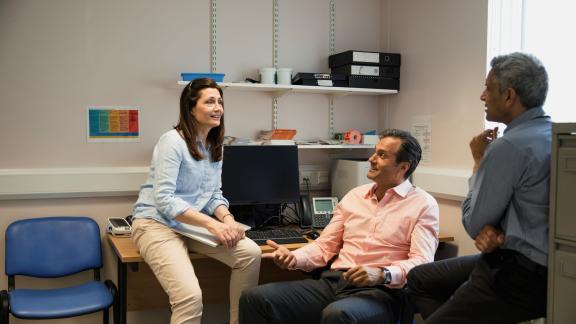Beware ministers seeking to reassert control over the NHS

A decade on from one of the most contentious set of reforms in the history of the NHS, the government is set to embark on a round of reforms that will reverse the changes introduced under David Cameron in 2012. Victor Adebowale, chair of the NHS Confederation, comments on the proposed reforms.
For many, this will be welcome news. In truth, the ‘Lansley reforms’ – as they came to be known after the former Conservative health secretary – have been an inconvenience that NHS leaders have largely had to work around to improve care for the public.
The Lansley reforms were the latest in a long line of reorganisations that successive governments have subjected the NHS to over its 70-year history. The health service has been in a near permanent state of revolution since 1948. The irony of the Lansley reforms is that he vowed they would be the ‘reorganisation to end all reorganisations’.
But fast forward a decade and we are about to embark on more changes.
The NHS traditionally fears disruptive reorganisations. But this time round there is much support for these reforms given they will help remove the barriers that hinder frontline services from joining up care for the public.
The use of competition and outsourcing as the main tools to improve quality of care and value for money for taxpayers will be replaced by collaboration and partnership working, which will become the organising principle of the NHS. However, that doesn’t mean we should end up with local monopolies as we must continue to work effectively, as we now do, with independent and voluntary sector providers.
We also believe it is the logical next step to establish integrated care systems as statutory bodies and build on the progress that has been made in recent years bringing together service provision, strategic commissioning and clinical leaders, all of whom will have an obligation to collaborate to improve the health of the communities they serve.
These reforms will take this further and ensure there is stronger integration within the NHS and between the NHS and local government. This will support place-based joint working to help address the wider determinants of health, support people to live healthier lives and to improve value to the taxpayer.
So far so good.
But one area where there is concern among NHS leaders is the prospect of ministers ‘seizing back control’ of the NHS. Weekend headlines indicated the government’s intention to reassert itself in the day to day running of the NHS.
Given the NHS is a public service that costs more than £100 billion to run, few would dispute the need for appropriate accountability to government and parliament.
But one of the few successes of the 2012 reforms has been establishing a statutorily independent board – NHS England – to distance politicians from the day-to-day running of the NHS.
It has enabled the NHS to quietly undertake a series of changes that have improved care for patients – all without the need for major legislation, which is often the tool that politicians reach for.
And the creation of an independent body has not prevented ministers from continuing to be active in setting policy over the last decade, as they should always be. But there is a balance to be struck and the NHS has undoubtedly benefited from having more control over day-to-day operational matters.
There appears to be a suggestion in some quarters that more control for ministers over the NHS would have led to an improved response to the pandemic. This will strike NHS leaders as a little strange, particularly as they are rapidly rolling out the vaccines, while also responding to the high level of COVID-19 infections we are still experiencing.
From a starting position, NHS leaders scaled up a major incident response last January and February, which meant the NHS was able to respond to the rising level of infections in March and April. The NHS was able to get on with the job in hand.
There will of course be lessons for us all, including the government and the NHS, on how the pandemic has been handled. A public inquiry will explore this at the right moment.
But it would be wrong to conclude that greater ministerial control would have led to an improved response. If anything, the NHS is already one of the most centralised health systems in the world and ministers must resist the temptation to centralise it further.
That is why, regardless of the arrangements at a national level, the latest reforms need to empower local NHS and care leaders to lead. They are best placed to run health and care services for their local communities, while continuing to be held to account by parliament.
Victor Adebowale is chair of the NHS Confederation. Follow him and the organisation on Twitter @Voa1234 @nhsconfed
This blog is based on an original version published in The Times Red Box.

